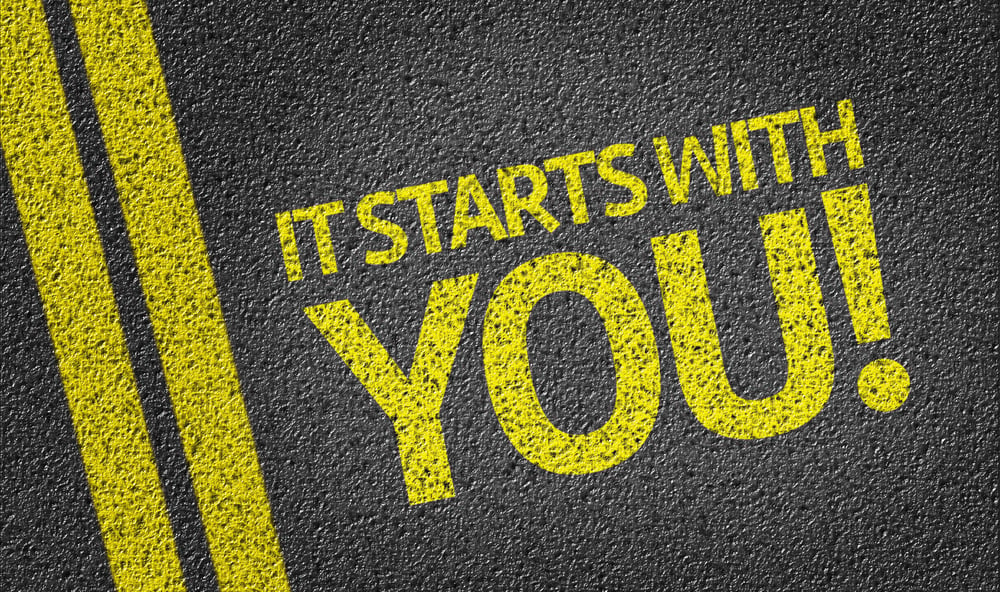You Can't Be What You Can’t See, Representation Matters

Black, LGBTQ+, women, and disabled people have historically been underrepresented in the workforce and when intersectionality is at play it signals that an individual may simultaneously experience multiple levels of oppression based on their identity. For example, black women are more likely to face both gender and racial discrimination at work. A lack of representation can have many negative consequences including feelings of isolation and exclusion and perpetuating the cycle of discrimination and bias as homogeneous workplaces are more likely to be rife with unconscious bias. A lack of understanding and awareness of the needs of diverse and intersectional groups is also commonplace. So what are the best ways to actively have positive representation?
THE POWER OF ROLE MODELS TO CREATE ASPIRATION
The power of role models should not be underestimated. Seeing someone who “represents me” in a position of success can inspire others to achieve their goals, regardless of the odds. This is especially true for Black, LGBTQ+, and disabled women, who have historically been denied opportunities and faced discrimination. When these women see someone like them in a position of power, it sends a message that anything is possible. For young girls, seeing a female doctor or politician can help to open their minds to the possibilities for their own lives. And for Black and LGBTQ+ youth, seeing successful adults who share their identity can help them to feel seen and valued. Role models play an essential role in promoting aspiration and helping everyone to reach their full potential.
By creating an inclusive environment, you are showing your employees that you value their diversity, and you are creating a more productive and creative workplace. Furthermore, by being a good role model for your workforce, you set the tone for how your company is perceived by the public. Inclusive and diverse companies are seen as progressive and forward-thinking, which can help to attract new customers and investors.
WHAT YOU CAN DO TO ENCOURAGE UNDEREPRESENTED PEOPLE TO ASPIRE IN THE WORKPLACE
In today's workplace, encouraging underrepresented people to aspire to leadership is more important than ever. This is not only the right thing to do from a moral standpoint, but it also makes good business sense. Diverse and inclusive companies are more innovative and better able to attract and retain top talent.
There are several things that companies can do to encourage underrepresented groups to aspire to leadership roles. Firstly, they can ensure that Black, LGBTQ+, and female employees have equal access to opportunities for career advancement. Businesses can provide training and mentorship programs specifically designed for employees from underrepresented groups. They can create employee resource groups for Black, LGBTQ+, and female employees. These groups provide support and networking opportunities, and they also help to increase the visibility of Black, LGBTQ+, and female leaders within the company. By taking these steps and others, companies can create a more inclusive environment that encourages all employees to thrive and reach their full potential.
THE IMPORTANCE OF ALLIES, MENTORS, AND SENIOR LEVEL SPONSORS
No one succeeds alone. Throughout history, marginalised groups have banded together to fight for their rights and create opportunities for future generations. In the workplace, the importance of allies, mentors and senior-level sponsors cannot be understated. Allies are people who use their privilege to fight for and support marginalised groups. Mentors provide guidance and support, while senior-level sponsors can open doors and create opportunities. For Black and LGBTQ+ employees, allies can help create a more inclusive environment. For women and disabled employees, allies can help level the playing field and build equity in the company’s culture. By working together, we can create workplaces that are truly inclusive for all.
THE BOTTOM LINE
It's been proven time and again that people need to see themselves reflected in the world to believe that they can achieve great things. As a business leader, it's important to understand the power of role models in the workplace and do everything you can to encourage underrepresented groups to aspire for leadership positions. This includes being a good role model yourself, providing mentors and allies for underrepresented employees, and ensuring that senior-level sponsors are accessible. Only by taking these steps can we begin to create lasting change in the corporate landscape. What steps is your business taking to ensure that all employees feel represented and empowered to succeed?
By Joanne Lockwood (she/her), founder and CEO of SEE Change Happen, and a Diversity & Inclusion Specialist who also promotes transgender awareness to organisations.




